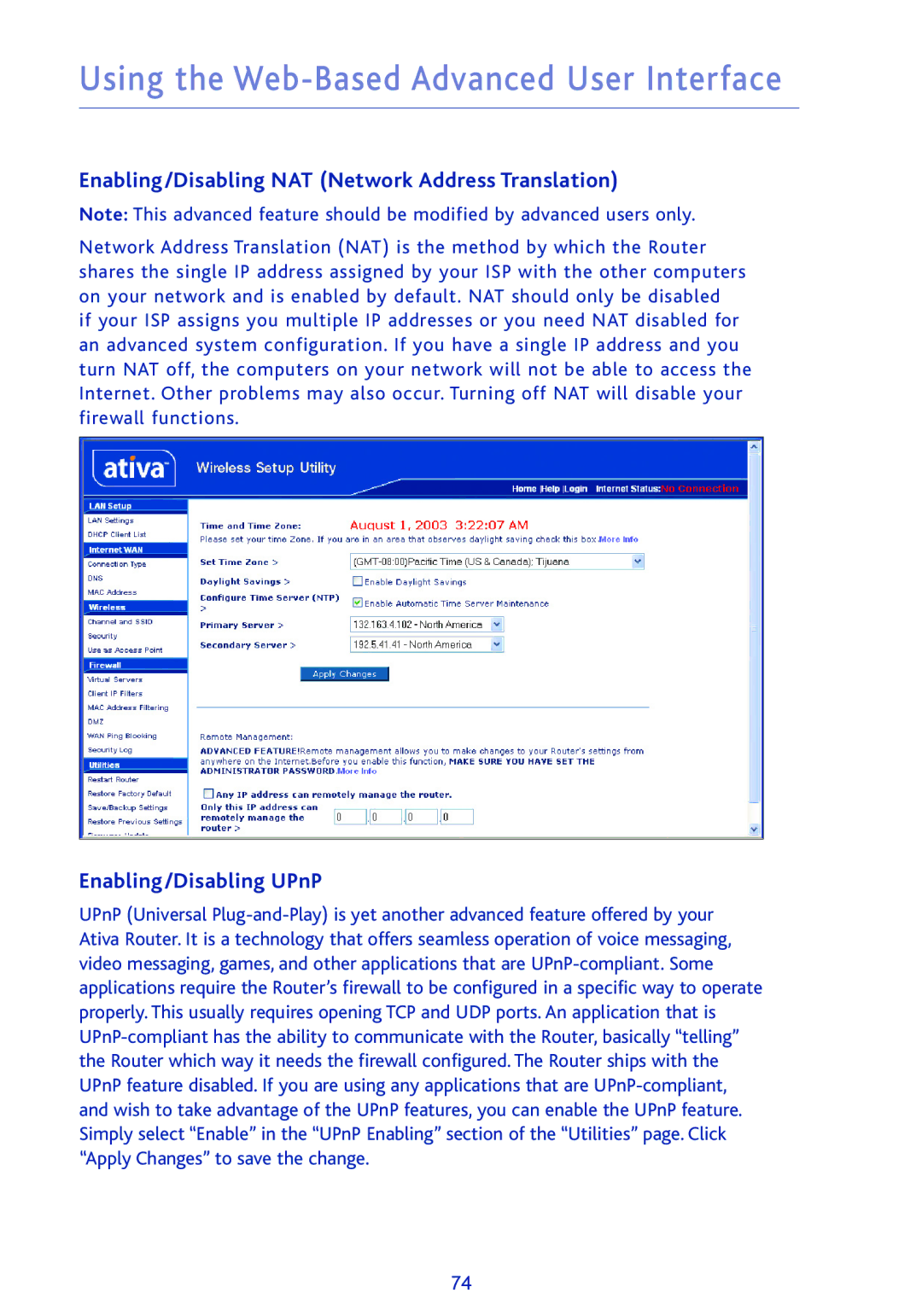
Using the Web-Based Advanced User Interface
Enabling/Disabling NAT (Network Address Translation)
Note: This advanced feature should be modified by advanced users only.
Network Address Translation (NAT) is the method by which the Router shares the single IP address assigned by your ISP with the other computers on your network and is enabled by default. NAT should only be disabled if your ISP assigns you multiple IP addresses or you need NAT disabled for an advanced system configuration. If you have a single IP address and you turn NAT off, the computers on your network will not be able to access the Internet. Other problems may also occur. Turning off NAT will disable your firewall functions.
Enabling/Disabling UPnP
UPnP (Universal Plug-and-Play) is yet another advanced feature offered by your Ativa Router. It is a technology that offers seamless operation of voice messaging, video messaging, games, and other applications that are UPnP-compliant. Some applications require the Router’s firewall to be configured in a specific way to operate properly. This usually requires opening TCP and UDP ports. An application that is UPnP-compliant has the ability to communicate with the Router, basically “telling” the Router which way it needs the firewall configured. The Router ships with the UPnP feature disabled. If you are using any applications that are UPnP-compliant, and wish to take advantage of the UPnP features, you can enable the UPnP feature. Simply select “Enable” in the “UPnP Enabling” section of the “Utilities” page. Click “Apply Changes” to save the change.

